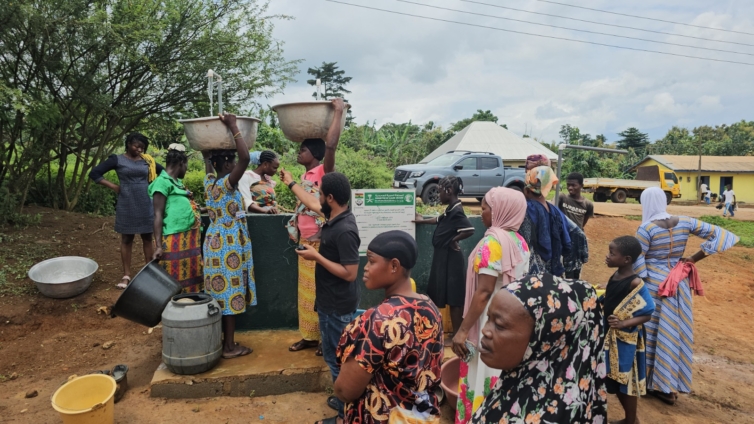The connection between water and poverty is undeniable. The absence of safe water and poverty feed into each other, with access to reliable sources of clean water playing a vital role in reducing poverty.
By the year 2030, the United Nations anticipates a staggering 40 per cent deficit in water supply compared to demand. Freshwater is becoming increasingly scarce in regions prone to drought, attributed to factors such as climate change, population growth, and excessive exploitation. With over two billion individuals lacking access to safe water and sanitation, achieving the UN's social development goal of universal access by 2030 seems dauntingly distant.
This is why the humanitarian organization Markaz Aleawn Alyaqin (MAA) has stepped in, providing clean water to 52 communities across the Ashanti, Bono, Western North, and Northern regions of the country.
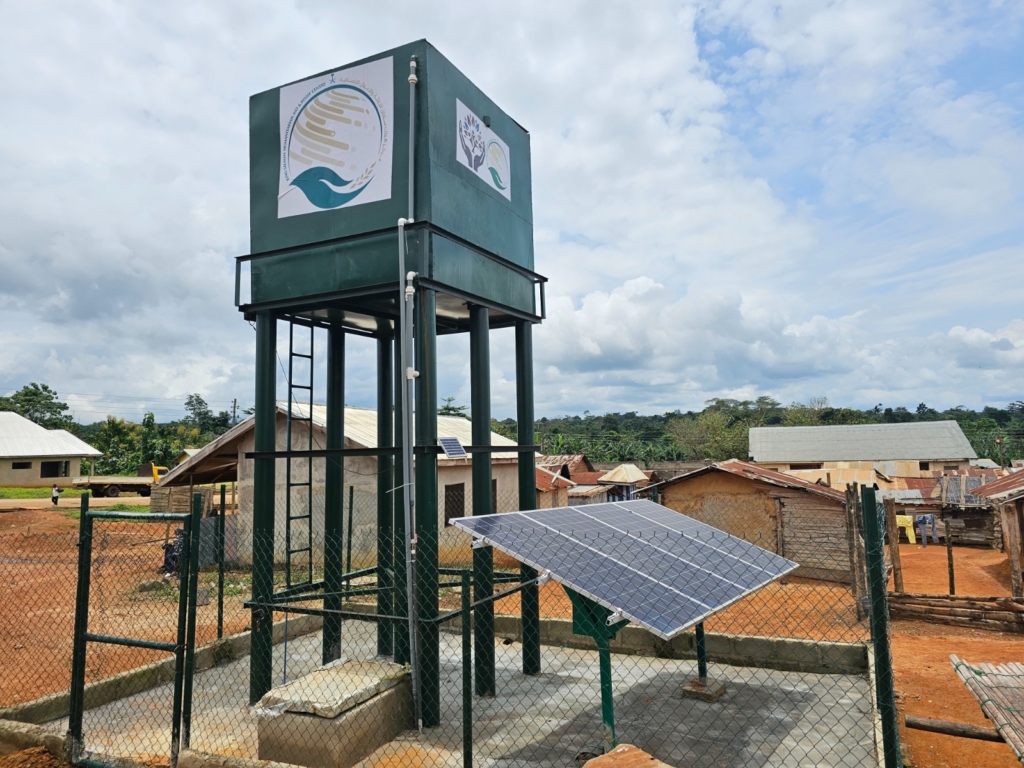
The clean water sources have reached several communities, including Tolon, Mion, Savelugu, Bimbilla, Nakpachie, and Gbambuni No 1 in Yendi, all situated in the Northern region. Sawaba and Gamborongo-Awiadoone, alongside other communities in the Upper East region, have also benefited from these clean water sources.
Communities such as Sunyani Zango, Sefwi Asawinso, Adankwame, Sekyeredumase, Wiamoase, Amanten Senior High Senior, and Mampong Bosofour, among others in the Ashanti, Western North, Bono, and Bono East regions, have been included in these projects.
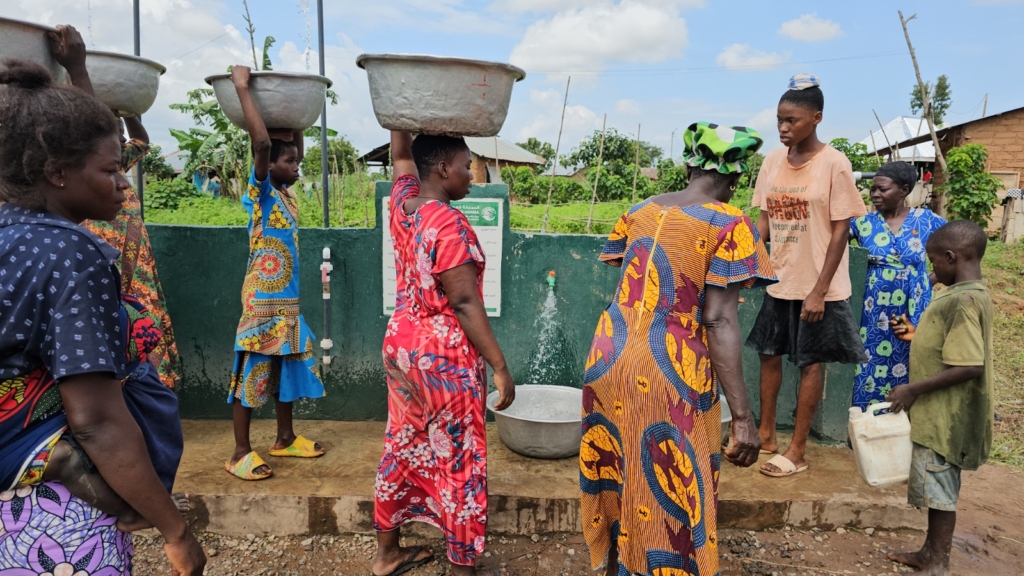
The water supply project, funded by the King Salman Humanitarian Aid and Relief Centre, includes a 15-cubic storage tank connected to strategically placed standpipes in each of the 52 communities.
The water is sourced from mechanized boreholes equipped with photovoltaic systems, and it is distributed through transmission and distribution lines. This initiative is expected to benefit a significant number of people, including animals in the areas and neighbouring communities.
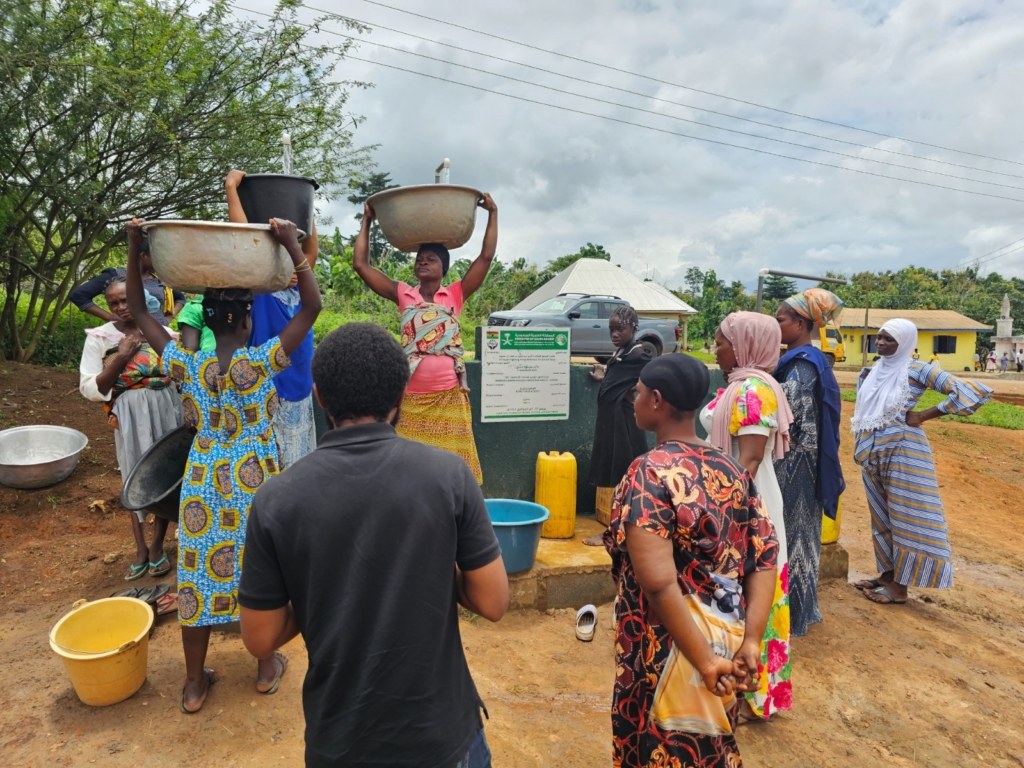
MAA's Executive Director, Ismail Mohammed Kamil, emphasized that the provision of clean water is not only essential for individuals but also crucial for entire communities.
"It goes beyond simply providing water; the goal is to ensure access to clean water that is safe for various household uses, including cooking, washing, and sanitation purposes."
On August 3, 2010, the United Nations General Assembly officially acknowledged access to clean water and sanitation as a fundamental human right, on par with other basic rights such as life, liberty, freedom of expression, and education.
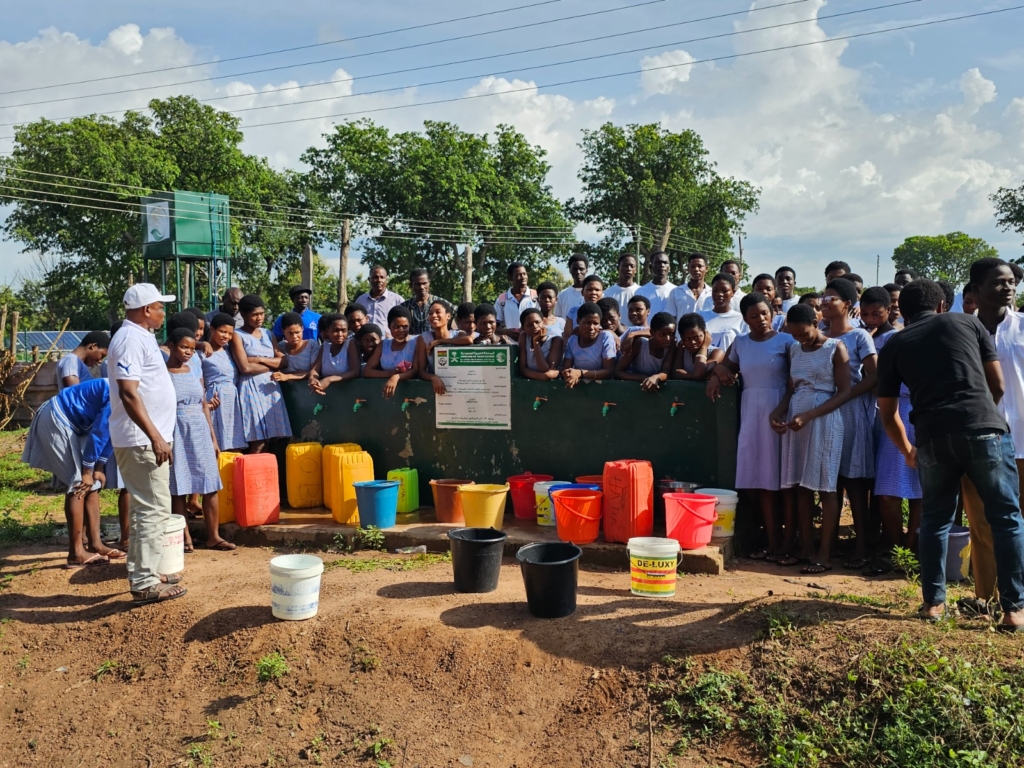
The UN highlighted the critical importance of this recognition, stating that the lack of access to safe, sufficient, and affordable water, sanitation, and hygiene facilities profoundly impacts the health, dignity, and overall well-being of billions of people. It emphasized that this deprivation has significant implications for the realization of other human rights.
In 2015, the United Nations embraced seventeen "Sustainable Development Goals" as a global roadmap aimed at eradicating extreme poverty, lessening inequality, and safeguarding the planet by 2030. Goal 6 concentrates on ensuring universal access to a sustainable and clean water supply, as well as adequate water sanitation for all individuals.
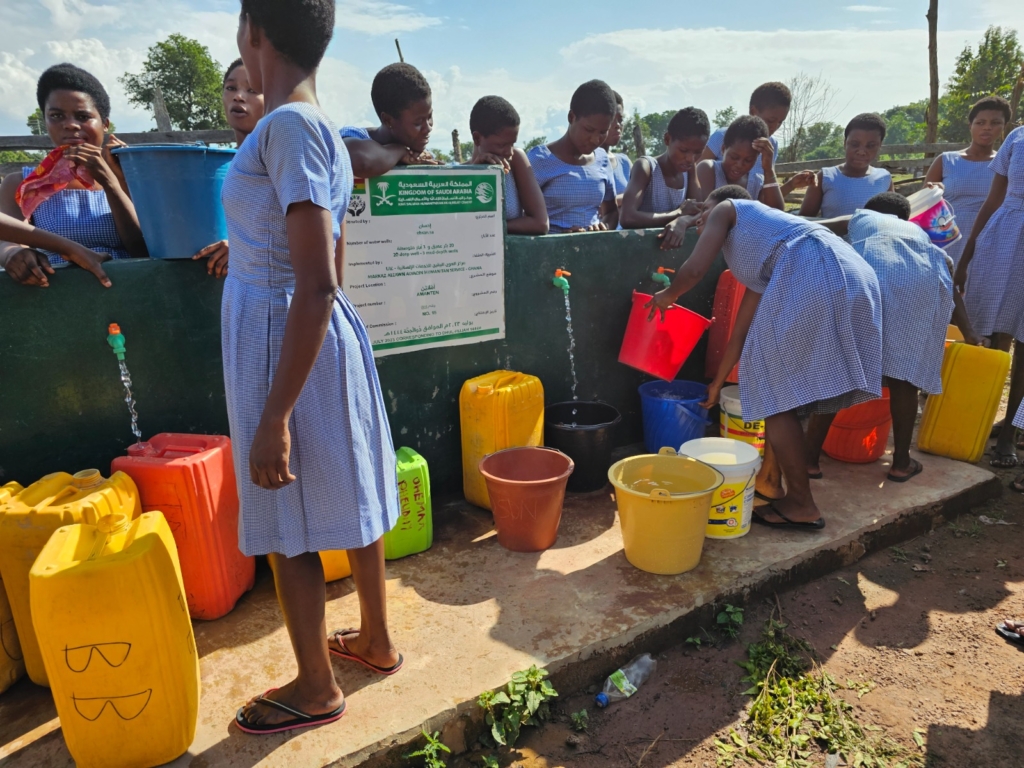
Ismail emphasizes the intertwined relationship between poverty and the absence of clean water, highlighting that a critical aspect of poverty alleviation involves ensuring access to safe water.
He said when water resources are improved and maintained sustainably; it significantly contributes to the economic advancement of a community and diminishes poverty levels.
"Clean water is our greatest challenge," remarks Abena Asiamah, a resident of Bosofour near Ashanti Mampong, emphasizing the profound impact of the situation on school children's punctuality. According to Abena, the circumstances are dire.
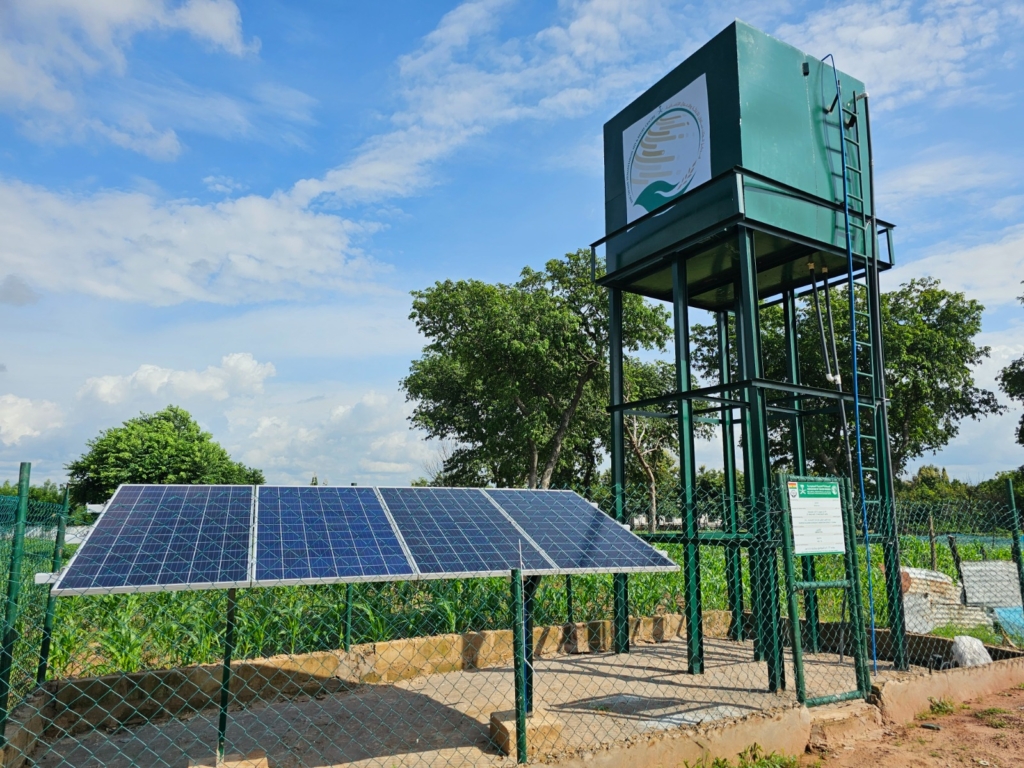
Abena Domaa echoes the sentiments of others, expressing sorrow over the absence of drinkable water and highlighting its immense value, asserting that life would be unbearable without it.
The only accessible mechanized boreholes are those requiring payment from residents. However, the impoverished argue that continuing to pay for this life-saving resource is financially burdensome. Consequently, residents are left with the choice of relying on the existing well or paying for water.
In these communities, women and children spend up to six hours daily fetching water, significantly limiting women's ability to generate income and depriving children of educational opportunities.
Now, Mrs. Asiamah and Abena have gained access to clean water, and their circumstances are expected to improve significantly in the coming weeks.
Ismail emphasizes that when any segment of a community is marginalized in this manner, it hampers social and economic development.
He explains, "For instance, when children attend school instead of spending their days collecting water, it opens up more opportunities for them and economically benefits the entire community."
Adizatu Kuburah and Faiza Mohammed, residents of Techiman Karkie, expressed their gratitude, noting that although they had tap water in their homes, it was often inconsistent. Adizatu mentioned that the construction of the water sources, directly pumped to an erected tank, has significantly improved the situation.
Faiza Mohammed emphasized that the previous water source was frequently overcrowded and unreliable, making her daily tasks more difficult. She mentioned, "I used to come here to fetch water even late at night to help with my household chores."
Abubakar Jibril, the treasurer of the local cattle business association, pointed out that their cattle had to travel to other areas for drinking water, causing inconvenience.
The provision of water directly to their doorsteps has brought considerable relief to the residents.
Ismail expressed his gratitude to KSrelief for entrusting the project to them. He stated with confidence that MAA is fully committed and eager to oversee and complete this project wholeheartedly, transparently, and accountably.
Latest Stories
-
Saminu Abdul Rasheed smashes national record again with 9.84s sprint in Georgia
37 minutes -
Blekusu Coastal project: We’re reclaiming our coastlines – Housing Minister
3 hours -
Pricey plantains push Ghana’s market sellers to diversify
3 hours -
Full list: NPP delegates approve 54 reform motions, reject proposals on youth age, election supervision
4 hours -
WAFCON 2024: Cynthia made it easy – Chantelle hails goalkeeper after penalty saves
4 hours -
Cyber Security Authority boss suspended over use of military bodyguard
4 hours -
WAFCON 2024: I want to make history – Grace Asantewaa dreams of lifting the trophy
4 hours -
Afenyo-Markin accuses NDC of rebranding and claiming credit for NPP projects
4 hours -
2024 WAFCON: Grace Asantewa shines as Black Queens reach semis
4 hours -
WAFCON 2024: Ghana beat Algeria 4-2 on penalties to book semi-final spot for the first time since 2016
4 hours -
NPP Delegates reject motion to shift polling station selection oversight to regional committees
4 hours -
2024 WAFCON: Black Queens set up semifinal clash with hosts Morocco
4 hours -
Dr. Amuasi champions healthy sustainable socio-ecological systems thinking in Lancet One Health Commission Report
5 hours -
Without unity, we’re just individuals with ambition – Afenyo-Markin
5 hours -
Rebecca Tweneboah Darko: Scattered thoughts; Scary times
5 hours

